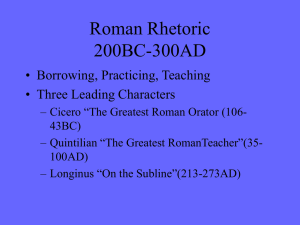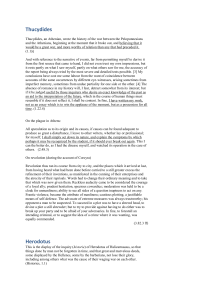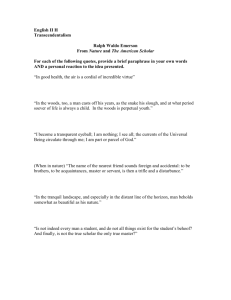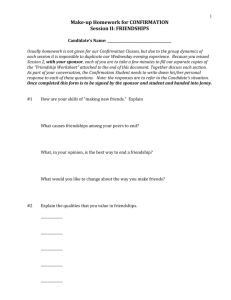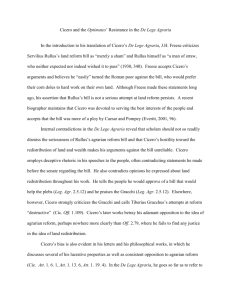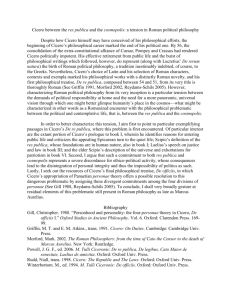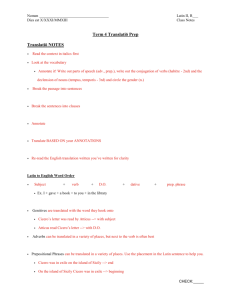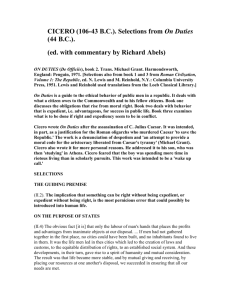Cicero's Laelius: On Friendship - Discussion Topics
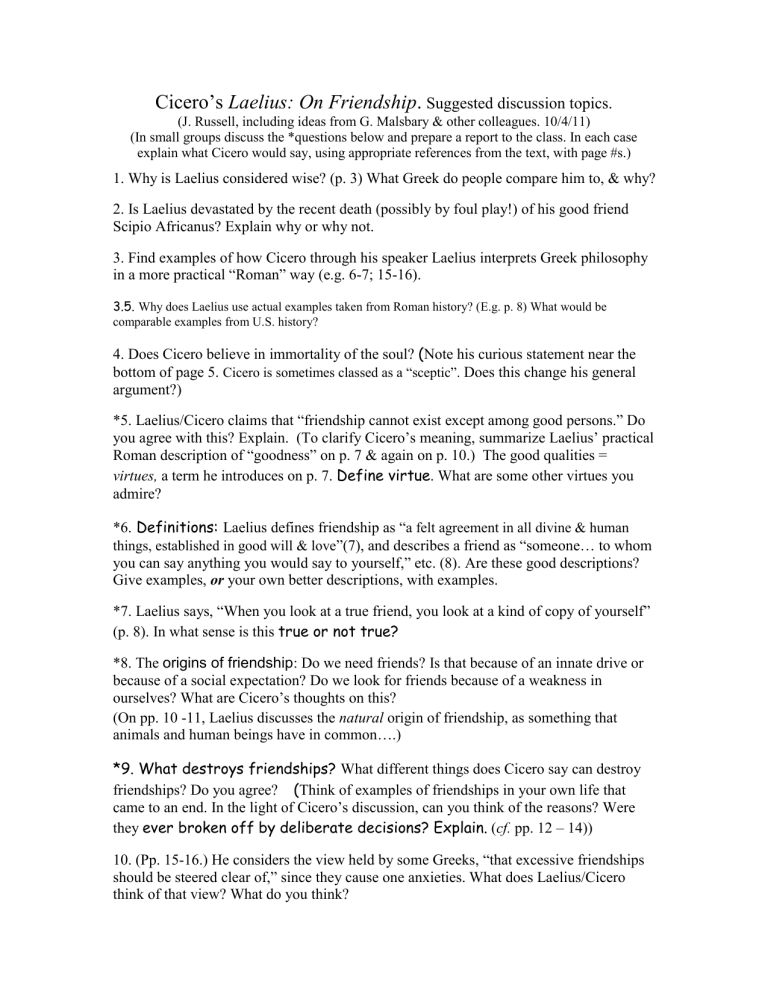
Cicero’s
Laelius: On Friendship .
Suggested discussion topics.
(J. Russell, including ideas from G. Malsbary & other colleagues. 10/4/11)
(In small groups discuss the *questions below and prepare a report to the class. In each case explain what Cicero would say, using appropriate references from the text, with page #s.)
1. Why is Laelius considered wise? (p. 3) What Greek do people compare him to, & why?
2. Is Laelius devastated by the recent death (possibly by foul play!) of his good friend
Scipio Africanus? Explain why or why not.
3. Find examples of how Cicero through his speaker Laelius interprets Greek philosophy in a more practical “Roman” way (e.g. 6-7; 15-16).
3.5.
Why does Laelius use actual examples taken from Roman history? (E.g. p. 8) What would be comparable examples from U.S. history?
4. Does Cicero believe in immortality of the soul?
(
Note his curious statement near the bottom of page 5. Cicero is sometimes classed as a “sceptic”. Does this change his general argument?)
*5. Laelius/Cicero claims that “friendship cannot exist except among good persons.” Do you agree with this? Explain. (To clarify Cicero’s meaning, summarize Laelius’ practical
Roman description of “goodness” on p. 7 & again on p. 10.) The good qualities = virtues, a term he introduces on p. 7.
Define virtue
. What are some other virtues you admire?
*6.
Definitions:
Laelius defines friendship as “ a felt agreement in all divine & human things, established in good will & love
”(7), and describes a friend as “someone… to whom you can say anything you would say to yourself,” etc. (8). Are these good descriptions?
Give examples, or your own better descriptions, with examples.
*7. Laelius says, “When you look at a true friend, you look at a kind of copy of yourself”
(p. 8). In what sense is this true or not true?
*8. The origins of friendship : Do we need friends? Is that because of an innate drive or because of a social expectation? Do we look for friends because of a weakness in ourselves? What are Cicero’s thoughts on this?
(On pp. 10 -11, Laelius discusses the natural origin of friendship, as something that animals and human beings have in common….)
*9. What destroys friendships?
What different things does Cicero say can destroy friendships? Do you agree?
(
Think of examples of friendships in your own life that came to an end. In the light of Cicero’s discussion, can you think of the reasons? Were they ever broken off by deliberate decisions? Explain.
( cf.
pp. 12 – 14))
10. (Pp. 15-16.) He considers the view held by some Greeks, “that excessive friendships should be steered clear of,” since they cause one anxieties. What does Laelius/Cicero think of that view? What do you think?
Russell/Malsbary Questions on Cicero 2 [Rev10/4/11]
*11.
[16]
Can wealth or power buy friendship? (Give examples.) Do tyrants have friends? Do `mean girls’?
12. On pp. 17 – 18, Laelius gives three views of friendship that he does not agree with (& then a 4 th
.) Can you find examples
of these in your own experience?
13. How do you CHOOSE good friends? (19).
*14. Can people only be friends with those who are equal to them in position or rank or wealth? Do you have friends who are superior or inferior to you in some way? Can you be friends with a boss or someone in authority? What are Cicero’s thoughts on this? (See esp. p. 20-21)
15. Are there limits to truthfulness in friendships?
How do you detect flattery?
(pp.
24 – 27). How do you avoid doing it yourself? How do you put an end to it by others?
16. On pp. 27 – 28, Laelius brings up the importance of inter-generational friendships
. This was a key to Roman political continuity. Does it have an influence in institutions of our own times? Can you think of any friendships across generational lines
(teenagers/adults, young adults/older adults) among your acquaintances?
17. At the very end of the essay,
Laelius (Cicero) concludes that virtue is actually
more important than friendship. Does this spoil the point
of the essay? What does he mean? Why is friendship so important then?
What precisely is the relationship between virtue and friendship?

